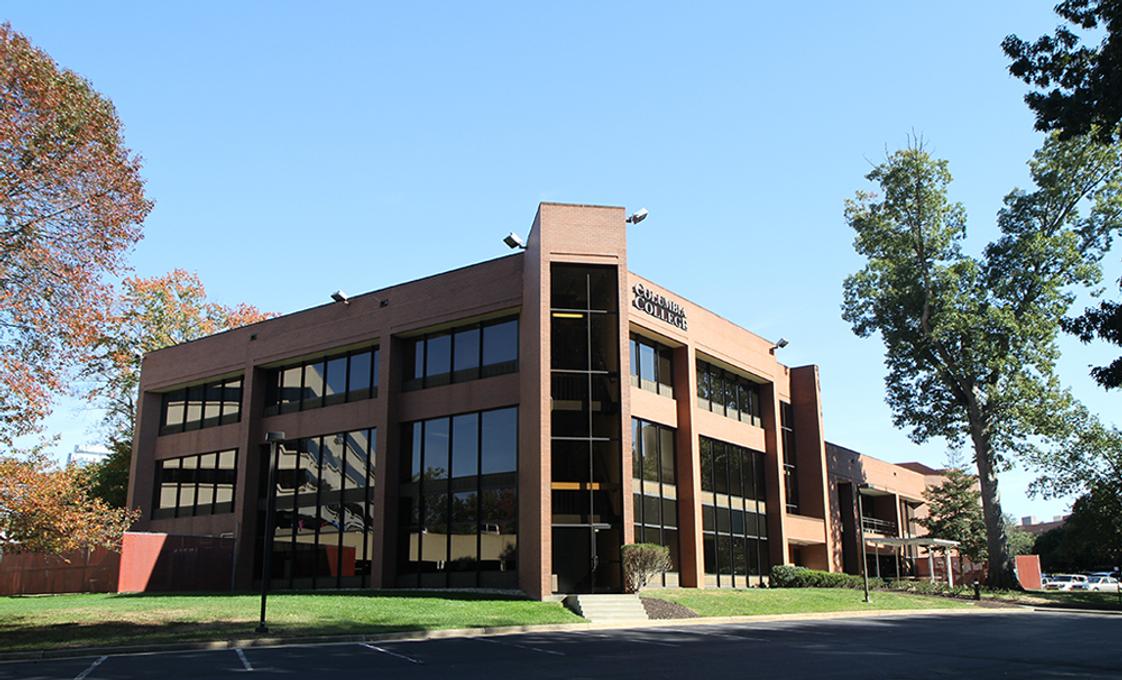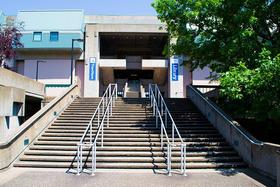- Challege to succeed with Columbia College!
- Columbia College in the Washington D.C. area has three campuses; in Vienna, Centreville, VA, and Silver Spring, MD. The school boasts in strong Vocaational English as a Second Language program. After completing the English Program, students often matriculate at the College for the vocational, practical program such as Cosmetology, Dental Lab Technology, Culinary Arts, Massage Therapy, Business Administration, Computer Science, Technical and Business English, and Teaching English to Early Childhood.
School Highlights
Columbia College serves 320 students (100% of students are full-time).
The college's student-teacher ratio of 8:1 is lower than the state community college average of 23:1.
Minority enrollment is 88% of the student body (majority Asian), which is more than the state average of 53%.
Quick Facts (2025-26)
- Enrollment: 320 students
- Student-teacher ratio: 8:1
- Minority enrollment: 88%
- Source: Verified school update
Top Rankings
Columbia College ranks among the top 20% of public schools in Virginia for:
Category
Attribute
Diversity
Completion Rates
Debt For Students
School Overview
The teacher population of 39 teachers has stayed relatively flat over five years.
Columbia College
(VA) Community College Avg.
Carnegie Classification
Associate's Colleges: High Transfer-Mixed Traditional/Nontraditional
Associate's Colleges: Mixed Transfer/Career & Technical-Mixed Traditional/Nontraditional
Institution Level
At least 2 but less than 4 years
At least 2 but less than 4 years
Institution Control
Private for-profit
Public
Total Faculty
39 staff
129 staff
Number of Programs Offered
11
10
School Calendar
Student Body
The student population of Columbia College has declined by 12% over five years.
The student-teacher ratio of 8:1 has decreased from 10:1 over five years.
The Columbia College diversity score of 0.71 is equal to the state average of 0.71. The school's diversity has stayed relatively flat over five years.
Total Enrollment
320 students
1,608 students
Student-Teacher Ratio
8:1
23:1
# Full-Time Students
320 students
637 students
# Part-Time Students
8 students
971 students
# Enrollment Undergraduate
320 students
314 students
# Full-Time Undergraduate Students
320 students
611 students
# Full-Time Graduate Students
n/a
158 students
# Part-Time Undergraduate Students
8 students
971 students
# Part-Time Graduate Students
n/a
61 students
Total Dormitory Capacity
n/a
476 students
% American Indian/Alaskan
n/a
n/a
% Asian
24%
8%
% Hispanic
3%
13%
% Black
1%
21%
% White
12%
47%
% Hawaiian
7%
n/a
% Two or more races
1%
5%
% Non Resident races
46%
2%
% Unknown races
5%
4%
Diversity Score
0.71
0.71
College Completion Rate (Students who graduate in less than 4 years)
61%
41%
College Completion Rate (Students who graduate in 4 years or more than 4 years)
n/a
26%
Tuition and Acceptance Rate
% Students Receiving Some Financial Aid
75%
77%
Median Debt for Graduates
$5,277
$10,500
Median Debt for Dropouts
n/a
$5,500
Acceptance Rate
n/a
59%
Source: 2024 (or latest year available) Integrated Postsecondary Education Data System (IPEDS) , School Administrators
Frequently Asked Questions
What schools are Columbia College often compared to?
Columbia Collegeis often viewed alongside schools like Northern Virginia Community College by visitors of our site.
What is Columbia College's ranking?
Columbia College ranks among the top 20% of community college in Virginia for: Diversity in US community colleges, Average community college minority breakdown, Highest completion rates and Least debt for graduating students.
Recent Articles

How to Transfer from Community College to a Four-Year University in 2025
A step-by-step guide for community college students transferring to a four-year university in 2025 — updated strategies, data and expert insights.

Scholarships for Community College Students 2025
Explore updated scholarship programs, tuition data, and expert strategies for community college students in 2025.

The Rise of Technical and Vocational Training in 2025
Explore the 2025 surge in technical and vocational training—enrollment, policy, costs, and why this path is gaining ground for students and parents.













